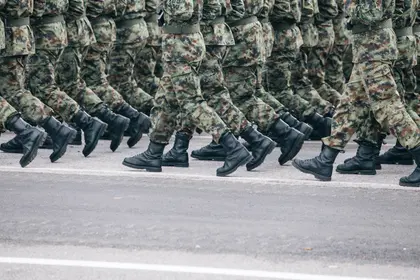On July 25, the Russian State Duma passed a series of measures aimed at tightening the regulations concerning military service. These amendments were introduced shortly before the meeting, catching many by surprise.
"This law was written for a big war, for general mobilisation. And now it feels like the big war is coming closer," the Head of the Defence Committee, Andrey Kartapolov, explained.
JOIN US ON TELEGRAM
Follow our coverage of the war on the @Kyivpost_official.
The decisions made by the deputies include several key changes. Firstly, the draft age will now be extended to 30 years, while the lower age limit will remain at 18 years.
Furthermore, the men of the conscription age will be prohibited from travelling abroad immediately after receiving the summons. This restriction will be enforced once the information about the conscription summons is published in the special register. Previously, the ban on departure was planned to be effective only after seven days of publication.
Those who fail to appear on the summons will now face fines ranging from 10,000 (80$) to 30,000 rubles (240$), a substantial increase from the previous range of 500 (4$) to 3,000 rubles (24$).
Moreover, medical and educational institutions will be obligated to furnish all necessary information about citizens to military enlistment offices electronically to maintain accurate military records.
Public reaction
The response to this event on social media was overwhelmingly negative. Users expressed concern, suggesting that the authorities treated men of conscription age as mere "cannon fodder" for further deploying them to war with Ukraine.

Finland PM Says Russia ‘Permanent’ Threat to EU
"It was initially clear that this law aims to send as many young people as possible as cannon fodder; that's why they raised the age. They talk about increasing the lower age to distract the public's attention. Is it really incomprehensible to someone? None of the council members want your children to study, work, get married, or have children. They have different perspectives on these matters."
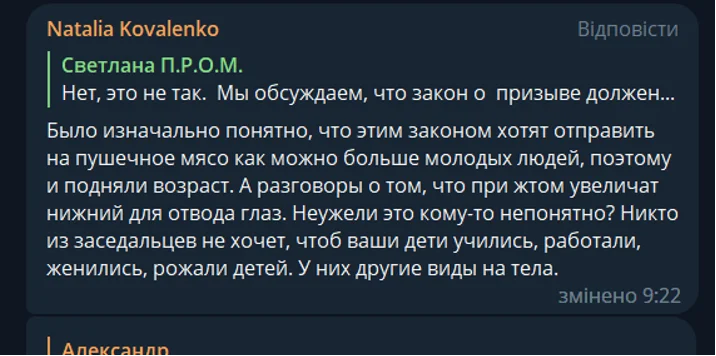
Another point of criticism was the authorities' failure to fulfil their promise of raising the draft age to 21, leaving the recruits at 18 years old.
'You know, it can be the last straw. They shouldn't have promised the conscription age to be 21. Or maybe that was the plan - to let the people down."

"Are you pretending, or do you not comprehend? Currently, it is essentially the same thing. Once enlisted in the army, individuals do not return home but instead sign contracts. Have you been informed about the law that allows individuals to sign a contract after one month of conscription service?"
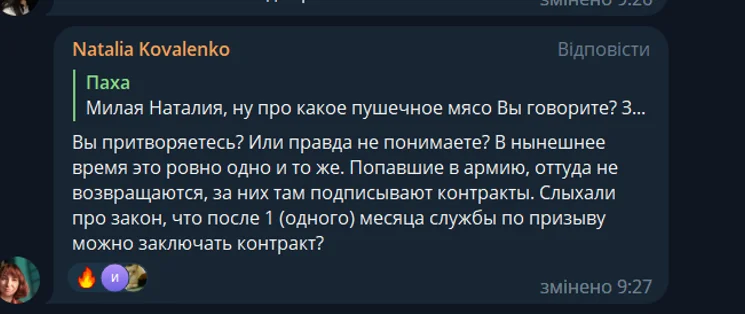
"What's the difference between being killed at 18 or 21? For you as a mother?"

Others were more supportive of the measures, considering the decision appropriate and necessary to strengthen the Russian army.
"Why not? This is necessary to increase the defence capability of our state!"
"This solution will provide more reserve soldiers for our army and increase its efficiency."
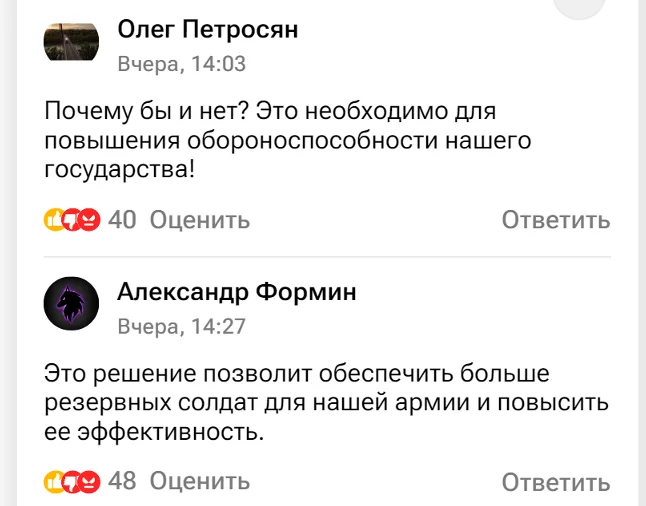
Others were just grimly sarcastic in their responses.
"I think that the conscription age should be decreased to 14. Many after the 9th grade would like to go to serve in the army and get a profession."
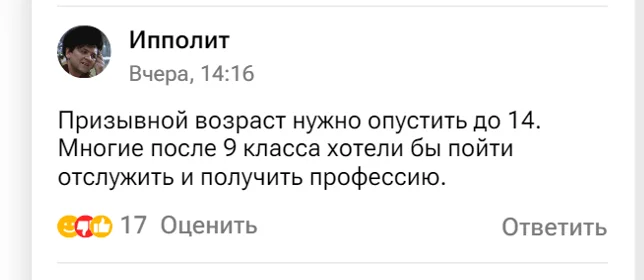
"Cheers! That's definitely the thing Russians lack for absolute happiness!"
"Is everything that bad?"
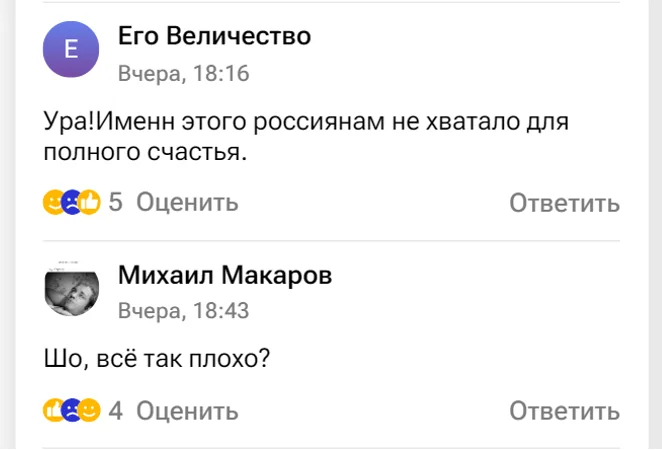
"A popular sign: if officials suddenly become more active in lawmaking on military topics, wait for mobilisation."
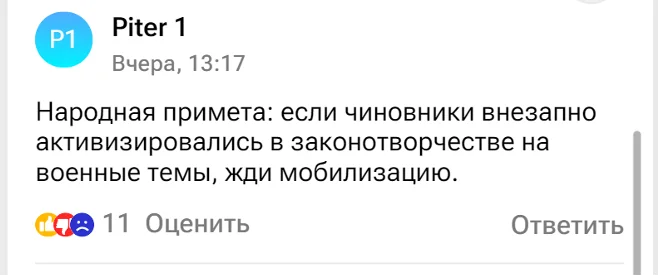
The user under the nickname 'da Force" expressed his disappointment about Russia becoming a "military camp" like North Korea.
"It is a pity that instead of comprehensively developing, Russia is turning into a military camp like North Korea," the used wrote.
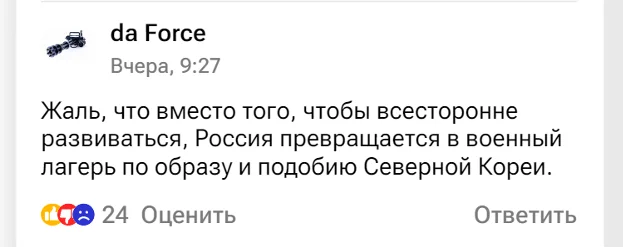
"If Putin decided so, it means it has to be so. No one will ask your opinion."
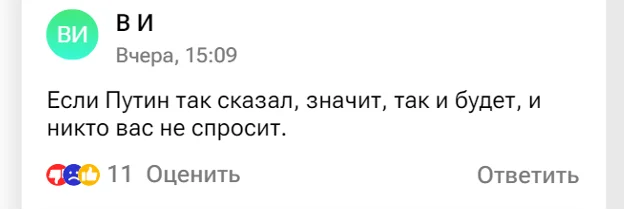
"Maybe we should stop being silent and sitting with the questions: 'What can we do?' and 'Who, if not him?' Now we are facing the consequences! What will happen next?"

Days before the new legislation, Russia also passed a bill that would allow its National Guard to deploy heavy weapons – including tanks – on the streets of the country in the wake of the short-lived insurrection by the mercenary group Wagner.
Since it was formed in 2016 its original role, as a means of controlling and stopping public demonstrations has since taken on a broader role including, participation in Moscow's full-scale war on Ukraine launched in February last year.
According to the legislation passed by parliament's lower house, the force, which answers directly to Putin, will be able to be armed with military-grade weapons, including heavy weapons.
In a further development, Russian schoolchildren will start learning the fundamentals of how to use combat drones as part of their initial military training course, starting from Sept. 1, according to the Russian Senator Artem Sheikin.
The program will cover the study of all elements of the purpose, design, technical features operational and tactical use of a number of military drones and how to counter attacks by enemy drones.
You can also highlight the text and press Ctrl + Enter


